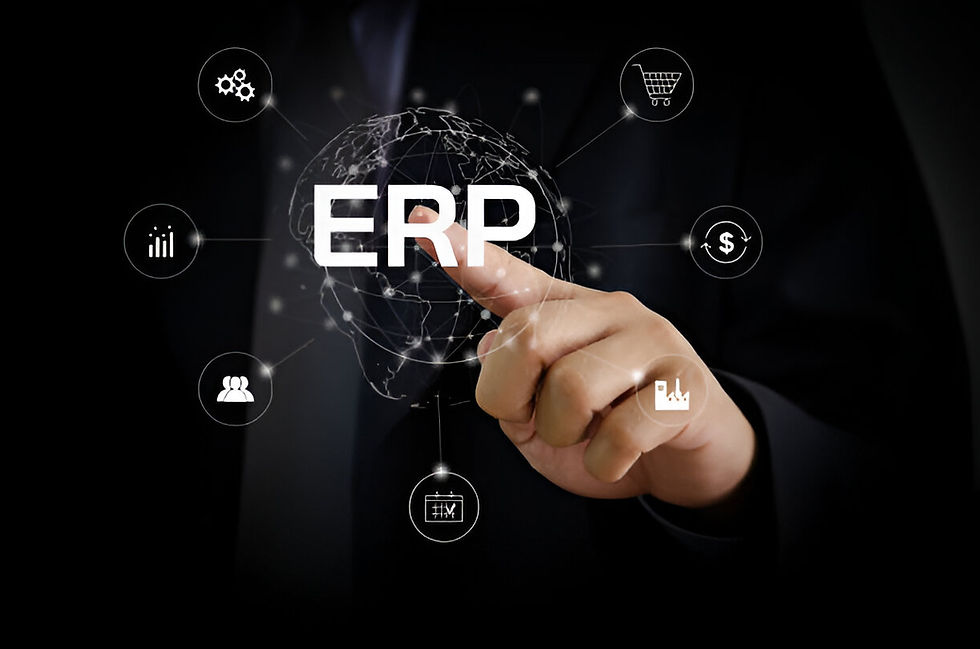ERP Providers vs In-House Solutions: Which Is Better?
- Rahman Iqbal
- Sep 2, 2025
- 3 min read
In the modern business world where competition is the order of the day, businesses are always seeking methods of enhancing efficiency, minimizing expenses and ensuring a competitive advantage. This is one of the key decisions that need to be made when expanding businesses: to use an Enterprise Resource Planning (ERP) system provided by external vendors or to create an internal one. These two methods have their merits, but it is important to know the difference between them to make the correct decision. In the case of businesses in Saudi Arabia, the use of ERP providers in Saudi Arabia or software such as QuickDice ERP can be a tactical move that has a significant effect on the efficiency of operations and future expansion.

The difference between ERP Providers and In-House Solutions
ERP system is a combination of basic business operations like finance, inventory, procurement, human resource, and sales into one system.
ERP Providers: These are third-party firms that provide ready-made ERP software which can be customized and implemented by businesses. They also tend to offer continuous support, updates, and cloud access. These are international ERP vendors as well as local providers.
In-House Solutions: Firms come up with ERP solutions within their organizations. This includes writing software, linking it with other systems, updating, maintaining and troubleshooting in house.
All of them are designed to consolidate data, automate operations and improve decision making, but each one of them differs in terms of cost, flexibility, scalability and time of implementation.
ERP Provider Benefits
Quick to Deploy: Third-party ERP vendors provide ready-to-use systems, which significantly reduce the time taken to implement the system. The system would allow businesses to begin using it earlier than developing an internal solution would.
Stability: The vendors of ERP have been in the business long enough to have tried their programs in many industries. This makes the running of the system a little smoother by eliminating possibilities of bugs, errors and systems failures.
Updates and Support: Providers update their software regularly to meet legal standards, introduce new features and enhance security. The local vendors also cover local tax and regulatory regulations in Saudi Arabia.
Affordable: ERP suppliers remove high upfront development costs of building in-house solution despite licensing and subscription fees.
Scalability: As the business grows, it will be easier to add new modules, users or locations with scalable solutions offered by vendors like QuickDice ERP.
Pros of An Internal Solution
Full Customization: ERP system can be modified to suit all processes and business requirements of the system.
Full Control: The business can fully control data security, software updates and integrations without any reliance on a third-party source.
No Vendor Dependency: Firms are not tied to the prices, schedules or rules of external suppliers.
In-House Solutions Problems
Despite the possibility to control and customize in-house ERP systems, they are linked with significant issues:
Expensive: A custom ERP system is very expensive in terms of what needs to be invested in software development and IT personnel to develop, maintain and upgrade.
Prolonged implementation period: An ERP system takes months or even years to be implemented, postponing the returns on centralized operations.
Maintenance Bearing: All troubleshooting, security patches and compliance customizations are done by internal staff, which can be diverted to the primary business process.
The reason why ERP Providers will be the better option in Saudi Businesses
To most companies in Saudi Arabia, there is a tradeoff between dependability, scalability, and affordability by outsourcing their ERP services in Saudi Arabia. ERP products such as QuickDice ERP offer powerful ERP tools with analytics and reporting, as well as cloud-based services, enabling organizations to simplify business processes, minimize errors, and access up-to-date information about business performance.
When businesses outsource their ERP solutions, they are able to concentrate on their growth and strategic planning instead of investing a lot of internal resources in software development and maintenance. They also ensure that the Saudi rules are observed and the businesses can easily operate under the rule of law.
Conclusion
The decision between an in-house ERP solution and an external ERP provider is based on the resources, technical skills, and the long-term objectives of a company. In-house systems are customizable and controllable, but costly and expensive to maintain. Conversely, ERP vendors such as QuickDice ERP, in Saudi Arabia, offer reliable, scalable and compliant solutions that enable organizations to concentrate on growth, whilst using cutting-edge technology to streamline operations.
It means that in most cases, when a business wants to go bigger, better serve customers, and streamline operations, it is usually more prudent to engage an ERP trusted partner.






Comments